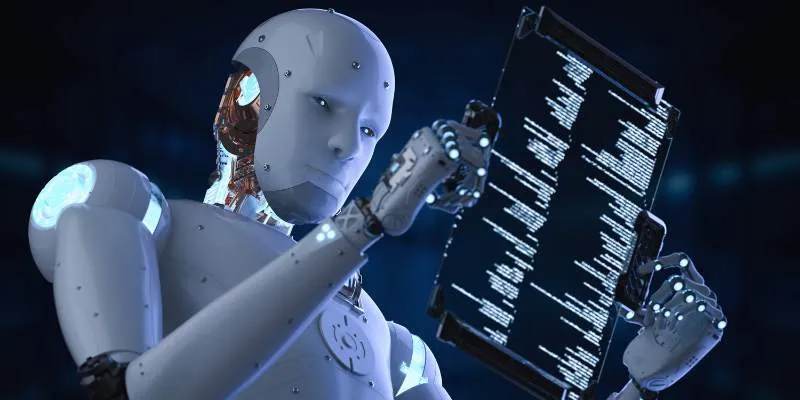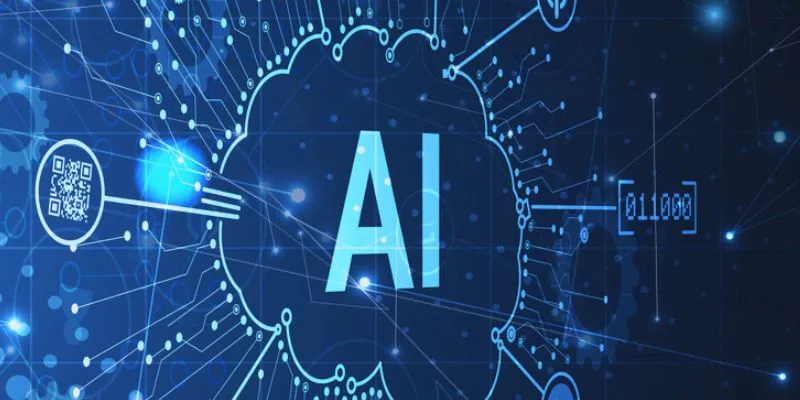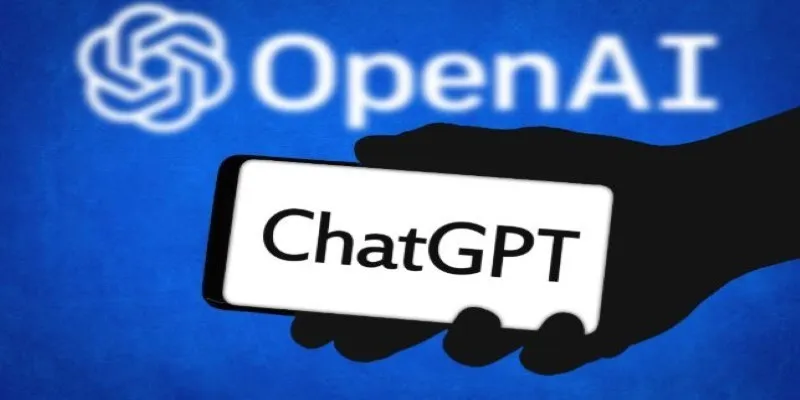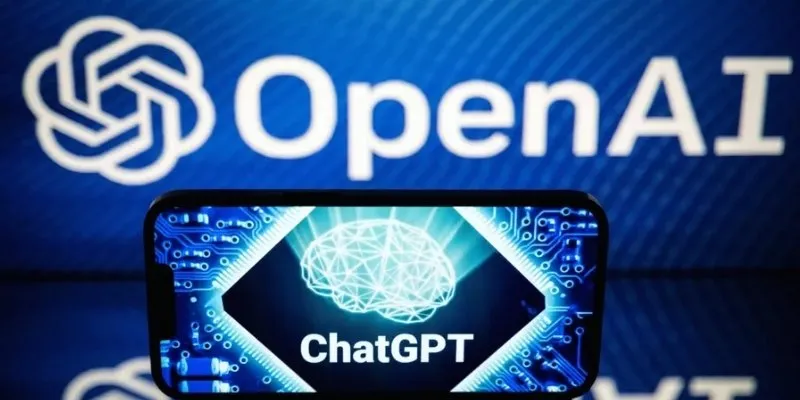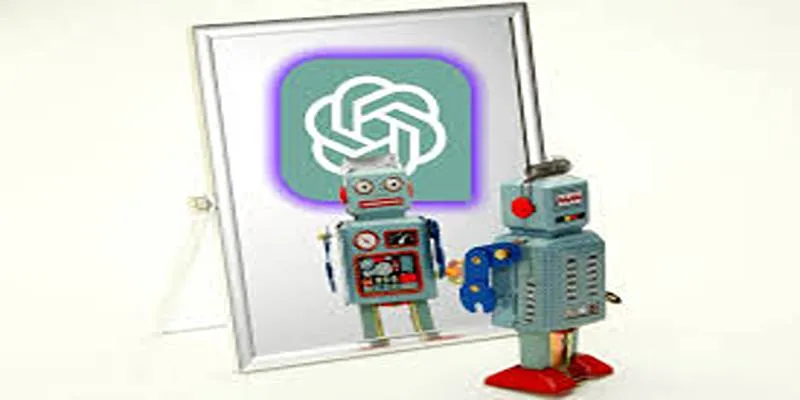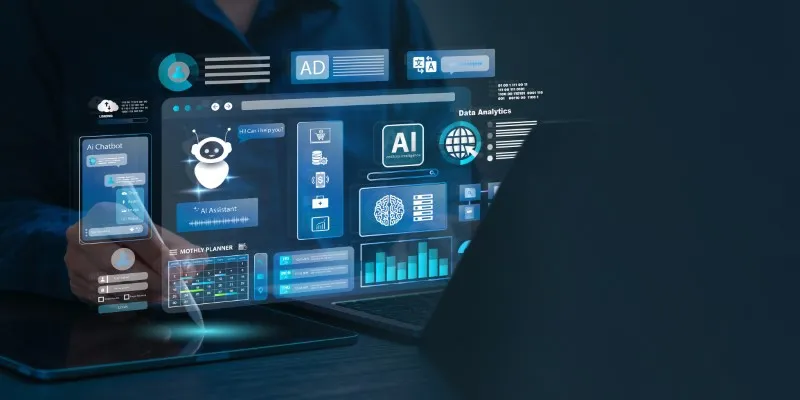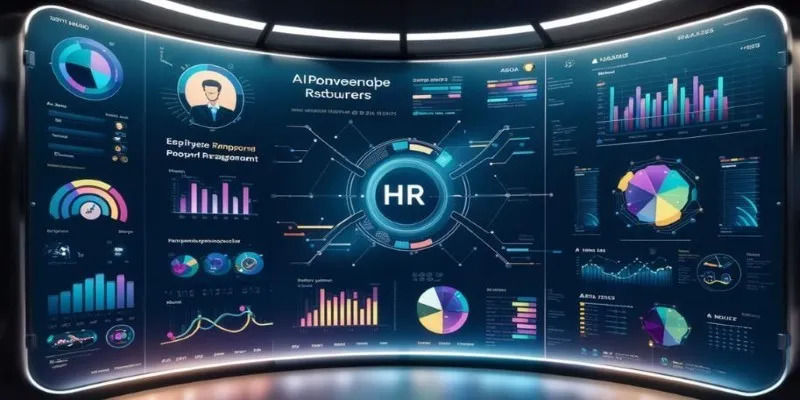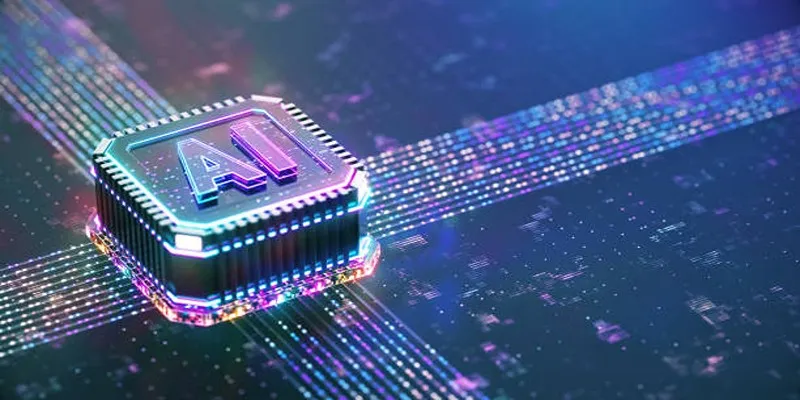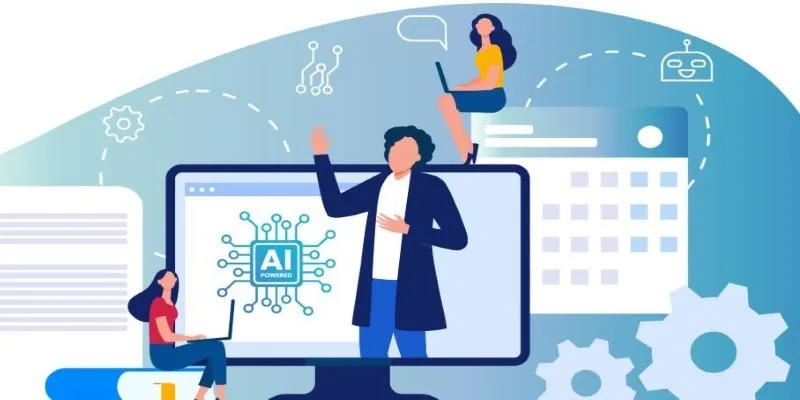Business operations are evolving as artificial intelligence (AI) and automation take center stage. These technologies streamline tasks, boost productivity, and minimize errors. AI-driven automation enables companies to enhance decision-making, save time, and reduce costs. By automating repetitive tasks, employees can focus on complex, high-value projects, ultimately improving job satisfaction and productivity.
Industries ranging from banking to healthcare are leveraging AI-powered automation to optimize their processes. This technology not only enhances operational efficiency but also enriches customer experiences. As AI and automation continue to influence corporate strategies and processes, their integration is transforming the workplace. This article explores how incorporating artificial intelligence in automated systems is reshaping employment.
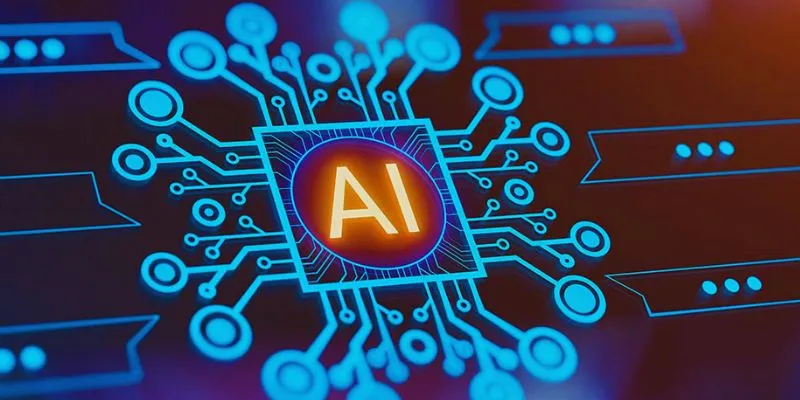
Enhancing Efficiency and Productivity
AI-powered automation accelerates processes by handling routine tasks. It allows companies to complete projects more quickly, reducing human errors and manual labor. AI algorithms perform real-time data analysis, make predictions, and optimize processes. By automating tedious tasks, employees can focus on strategic planning and critical thinking, leading to higher job satisfaction and productivity. Moreover, AI-driven workflow automation enables businesses to scale operations without increasing costs.
For instance, AI chatbots handle customer inquiries, freeing up support staff. Automated data entry replaces manual processing, enhancing accuracy. Companies using AI-powered task management experience shorter wait times and fewer delays. Businesses that embrace AI and automation realize significant time savings, boosting overall efficiency and alleviating bottlenecks. These technologies will be vital for the future of work, improving performance and streamlining processes.
Reducing Errors and Improving Accuracy
Manual processes often lead to errors, wasting time and resources. AI-driven automation enhances data accuracy and minimizes mistakes. Machine learning systems process large data sets without fatigue or bias. AI’s precision benefits industries like banking and healthcare significantly. In banking, automated systems detect fraud, reducing financial risk. In healthcare, AI- powered automation ensures accurate patient records and medication tracking.
AI reduces errors in documentation, calculations, and data entry. Companies relying on AI-driven workflow automation experience fewer discrepancies, enhancing overall efficiency, consumer confidence, and compliance. As AI technology continually learns and adapts to new challenges, error rates will decline further. Businesses prioritizing AI integration will operate with greater precision.
Enhancing Decision-Making with AI Insights
AI enhances decision-making by analyzing vast amounts of data, identifying trends, and providing valuable insights. This capability allows businesses to act swiftly and informedly. AI-driven automation enables companies to forecast operational risks, consumer behavior, and market trends, improving resource allocation and strategic planning. Businesses leveraging AI insights gain a competitive advantage.
Retailers use AI to optimize inventory based on demand predictions. Financial firms rely on AI for investment strategies and risk assessment. AI automation ensures more accurate decision-making, reducing uncertainty and boosting productivity. Businesses incorporating AI into their processes will make faster, smarter decisions, resulting in more agile and successful operations.
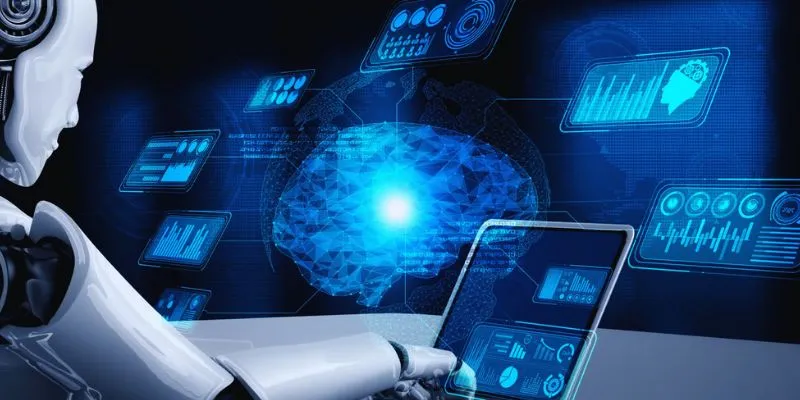
Enhancing Customer Experience with AI-Powered Automation
Customer experience is crucial to business success. AI-driven automation provides quick, personalized responses, enhancing customer interactions. Virtual assistants, chatbots, and AI-driven support systems boost engagement and satisfaction. AI analyzes consumer behavior to offer tailored recommendations. For example, e-commerce sites use AI to suggest products based on browsing habits, creating a more personalized and efficient shopping experience.
Automated customer service reduces wait times and improves problem resolution. AI-driven task management ensures seamless support and continuous query handling. Companies using AI for customer engagement report higher loyalty and retention rates. Automation allows businesses to enhance customer service without increasing costs. AI-driven workstream automation ensures consistently high-quality responses, reducing human errors and creating a more customer- centric, efficient business model.
The Role of AI in Employee Productivity and Job Satisfaction
AI and automation enhance rather than replace jobs. By reducing time spent on mundane tasks, employees can focus on strategic and creative work, increasing job satisfaction and motivation. AI-powered automation manages email sorting, report preparation, and scheduling, allowing workers to concentrate on tasks requiring human expertise. This balance improves work efficiency and reduces burnout.
Companies implementing AI-driven process automation create more engaging workplaces. Fewer manual procedures reduce employee frustration, and opportunities for innovation abound. AI-driven task management ensures employees work smarter, not harder. By lowering task demands, AI boosts workforce productivity. Companies prioritizing automation empower their employees, leading to higher retention rates. Building an effective and motivated team relies on AI and automation, essential tools for modern businesses.
The Future of AI-Driven Automation in Workplaces
AI and automation are rapidly transforming industries worldwide. Future advancements will integrate AI into everyday tasks, enhancing business efficiency. Early adopters of AI will gain a significant competitive advantage. AI-driven automation will be pivotal in areas like cybersecurity, marketing, and recruitment. Automated hiring systems will streamline candidate screening, while AI-backed marketing strategies enhance personalization and customer targeting.
As technology advances, AI will assume increasingly sophisticated roles. Companies will depend on AI-driven workflow automation to manage operations, predict trends, and boost efficiency. The demand for AI-powered task management technologies will continue to grow. To stay ahead, companies must invest in AI and robotics. Adopters of these technologies will experience improved accuracy, productivity, and decision-making capabilities. AI is shaping the future of work, and success will largely depend on embracing automation.
Conclusion
The integration of AI and automation is revolutionizing the modern workplace. These technologies streamline processes, reduce errors, and enhance efficiency. Companies adopting AI-driven process automation gain a competitive edge. AI automation improves productivity, customer service, and decision- making. As AI technology evolves, its impact will continue to grow. Companies investing in AI-driven task management will experience sustained growth. Future success hinges on embracing AI and automation, as businesses leveraging these technologies will thrive in an increasingly competitive landscape. AI- driven automation will define the future of work.
 zfn9
zfn9



